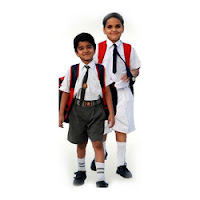National Curriculum Framework 2000
National Curriculum Framework 2000
Title- National Curriculum Framework for School Education.
 Content-
Content-
- Introduction
- Curriculum Group
- Basic considerations
- Salient features
- Scheme of study
Elementary education (8 years)
Secondary education (2 years)
Higher Secondary education (2 years)
Introduction
It is third national curriculum framework in the history of Indian education system. It was Based on the recommendations of the NPE (National policy on education),1992.
Published By: NCERT
First Edition: Nov 2000
Revised Edition: Sep 2001
Curriculum Group
Prof. J. S. Rajput Chairman
Prof. R. D. Shukla Member
Prof. Rajendra Dixit Member
Prof.(Mrs.) S. Sinha Member
Prof. K. K. Vashishtha Member
Prof. O. S. Dewal Member
Prof. V. K. Raina Convener
Basic Considerations
- Medium Of instructions and common school structure
- Core Curriculum, CCE, Vocational Education.
- Minimum Level Of learning (MLL)
- Value Education, Management and accountability
- Stress free Early childhood care and Education
- General objective of Education
- Open learning system
Salient Feature
- Indigenous Knowledge
- Religion as a major source of value education
- Inculcation of basic of all religion
- Flexibility in content and mode of learning to suit all learner.
- Inclusion of Fundamental Duties
- Elimination of evils like poverty, ignorance, ill health, corruption and violence, and ensuring equity, health, peace and prosperity
- Use of information and communication technologies
- Nurturance and sustenance of multiple talents and creativity among all learners in all spheres of learning at the earliest opportunity
- Shift From “Teacher centered Approach” to “Learner Centered Approach”
Scheme of Studies
Early childhood education
- It is in the form of Pre-School education under ‘Integrated Child Development Scheme (ICDS) with the Help of ‘Anganwadies’.
- Other form may be Nursery and Kindergarten.
- Play Way Technique
- Language Games
- Number Games
- Activity directed to promote Socialization and environmental awareness
- Drawing , counting, naming, matching etc.
- Children should be provided opportunities for development of essential skills of identification, naming, comparison matching, serialization.
- They Should be encouraged to play with pets, knowing common bird, pets, animals, plants, transports etc. and some celestial bodies such as moon, sun earth etc.
Primary Stage (5 years)
- One language – mother tongue or Regional language
- Mathematics
- Art of health and productive living
Upper primary stage (3 Years)
- Three language – Mother tongue or Regional language Modern Indian Language English
- Mathematics
- Science and technology
- Social Science
- Work Education
- Art Education (visual and Performing)
- Health and Physical Education (Sports and games).
Secondary stage (2 Years)
- Three language – Mother tongue or Regional language Modern Indian Language English
- Mathematics
- Science and technology
- Social Science
- Work Education
- Art Education (visual and Performing)
- Health and Physical Education (Sports and games).
Here we have two streams- Academics and Vocational
Academic Stream-
Foundation Course
Language and literature
Work education
Health and Physical education
Vocational stream-
General Foundation Course
Language
Vocational Electives
Reference:NCF 2000 (NCERT)
Summary (NCERT)
http://www.ncert.nic.in/html/pdf/schoolcurriculum/ncfsc/Summary.pdf

.png)
উপকৃত হলাম। ধন্যবাদ।
ReplyDeleteUtkrisht shikshan
ReplyDeleteThanks 👍
ReplyDeleteWelcome
DeleteSir please upload 8th, 9th, 10th Kannada medium science notes please
ReplyDeleteMaths Curriculum
Million Miracle is the Best nursery school near Raja Park , Jaipur, and our nursery school is creative and attractive play school in Jaipur.
ReplyDelete